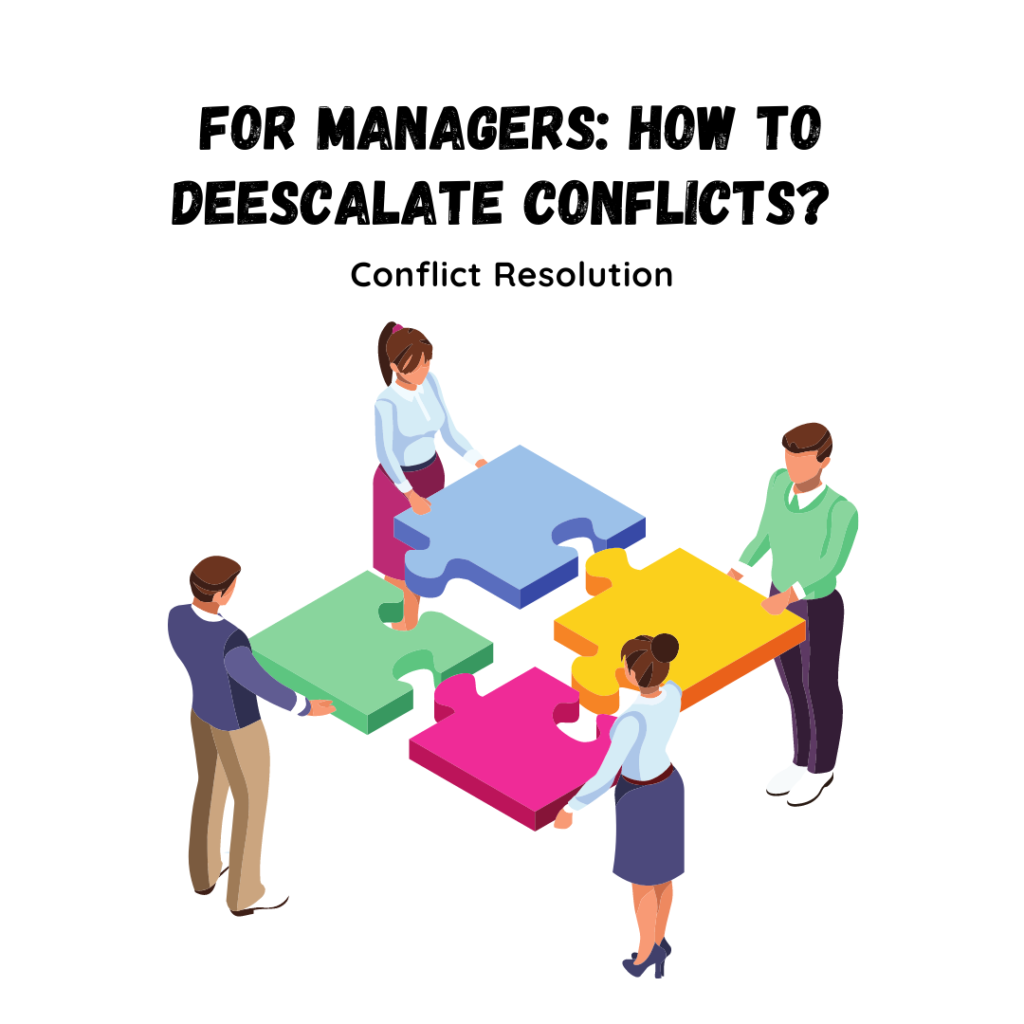
Conflicts at work escalate more easily than they are constructively resolved, especially when there is not only a difference of opinion, but also a difference of interest. There are all kinds of factors that can make conflicts get out of hand less easily. These factors focus on creating a constructive culture of conflict.
Address the power imbalance
Try to compensate for the existing power differences that exist. As a manager, you can do this by engaging in a mediation process through an independent mediator if you are part of a conflict yourself. If the conflict is between two of your associates where one clearly has more power and influence than the other, you know that the more powerful one is more likely to fall prey to less constructive ways of handling a conflict. The less powerful one will lose out easily. By reducing the power differences, the conflict can more easily be tackled from a problem-solving point of view.
Hold people accountable
Make sure that the parties to the conflict are accountable for the way in which they approach and handle the conflict, not for the results achieved or ‘profits’ made. Process of accountability requires that you invite people to reflect on their own approach instead of sharing their successes. Especially in an organization where there is a lot of negotiations taking place, it is worthwhile to introduce and encourage this approach to deal with different interest groups and constituencies.
Create a favorable environment
The most important way to counter conflict escalation is to create a favorable environment. This means that conflicts are not fought out, but that employees learn to respect each other’s points of view. In such a climate, the collective interest and cooperation are valued more than the personal gain of the individual at the expense of that of the other. As a manager, in particular, you have a lot of influence on the climate. You can focus on shared goals and rewards and assess people not only on their personal result, but also and above all on their contribution to the whole, to the collaboration and to the results of the department, the business unit, etc. This is also possible if you are in favor of result-oriented management.
Avoid time pressure, create time
Time pressure in a conflict leads us to become inadequate in our reasoning and more likely to fall back into simplified thinking patterns. To avoid time pressure, you as a manager can mean a lot by giving the employees involved some extra time by adjusting deadlines and, for example, giving a short time-out in the conflict.
